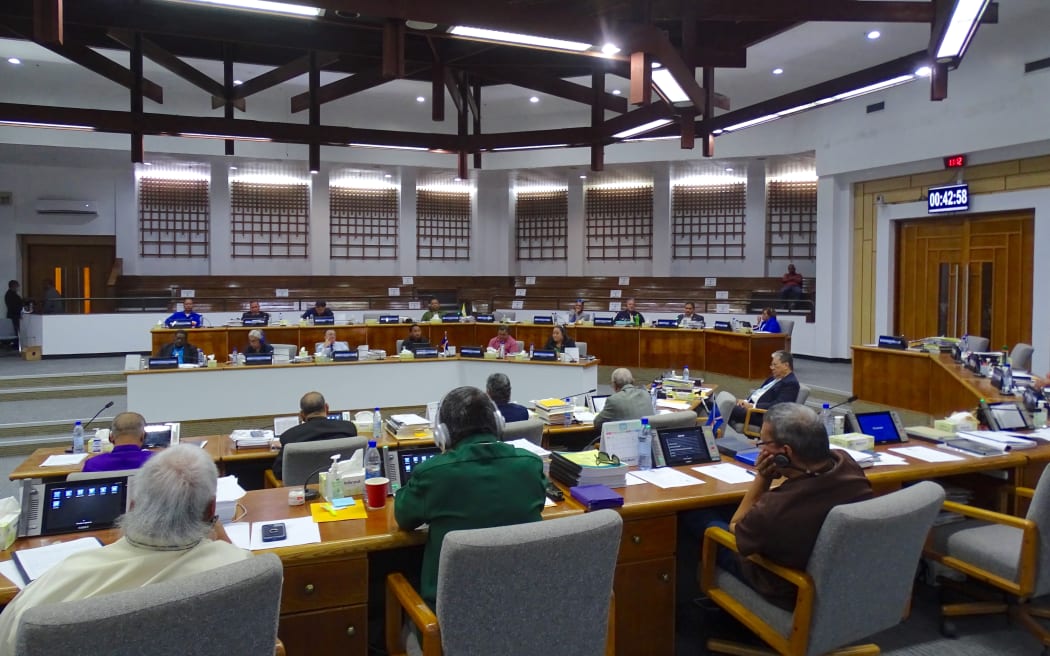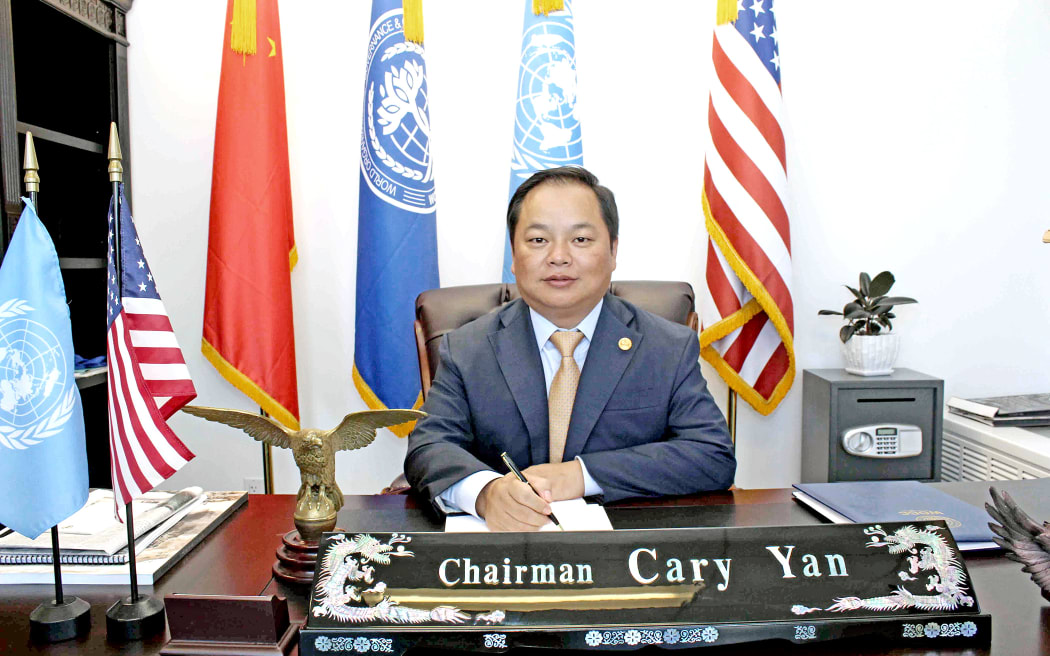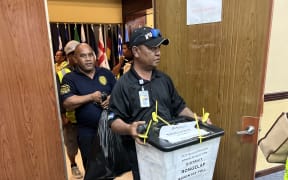
Two members of the Marshall Islands parliament, seen here meeting in this January 2023 file photo, have been barred from entering the United States for corruption, according to the US State Department. Photo: Hilary Hosia
The United States issued a travel ban against two members of the Marshall Islands parliament for corruption it says involved bribe-taking, the first-time elected leaders in this US-aligned western Pacific nation have been publicly sanctioned by the US government.
The Marshall Islands, which hosts a US missile defense testing facility at Kwajalein Atoll, is seen by Washington as a key part of its effort to block China's increasing influence in the region.
The two countries in October concluded negotiations on a new 20-year economic package as part of a Compact of Free Association that will provide the Marshall Islands with about $1.7 billion in exchange for giving the US defense authority over its vast exclusive economic zone.
The State Department on Tuesday barred former Marshall Islands President Kessai Note, the current transport minister, and Nitijela (parliament) member Mike Halferty, from entering the US due to "involvement in significant corruption".
The State Department stated its travel sanction against Note and Halferty was for taking bribes from two Chinese-born scammers, Cary Yan and Gina Zhou, to further a plan to create "a semi-autonomous region in the Republic of the Marshall Islands".
Yan and Zhou were at the center of a major investigation by the Organized Crime and Corruption Reporting Project (OCCRP) that was published in October, detailing their activity in the Marshall Islands, at the United Nations and in other countries.
"Section 7031(c) (of US law) provides that in cases where there is credible information that officials of foreign governments have been involved in significant corruption or a gross violation of human rights, those individuals and their immediate family members are generally ineligible for entry into the United States and must be either publicly or privately designated," the State Department's said Tuesday Majuro time to mark International Anti-Corruption Day.
Former president Note pushed back on the US sanctions.
"The whole thing is predicated on false accusations," Note said Wednesday in response to questions from the Marshall Islands Journal, the country's weekly newspaper
"No further comments," he added.

A promotional picture of Cary Yan taken in his New York City-based NGO prior to his arrest last year and conviction in a New York court for bribing Marshall Islands leaders — a conviction that led to US State Department sanctions against two members of the Marshall Islands parliament this week. Photo: Supplied
Both Note and Halferty easily won re-election to new four-year terms in parliament in the national election held last month.
Note, who was president of the Marshall Islands from 2000-2008 and is the longest serving political leader about to enter his 45th year in parliament, and Halferty were designated for accepting "bribes in the form of services and cash, in exchange for their legislative support of a bill in the Marshall Islands legislature to create a semi-autonomous region in the Marshall Islands," the US announcement said.
The United States is publicly designating Note and Halferty, for their involvement in significant corruption by accepting articles of monetary value and other benefits in exchange for acts in the performance of their public functions," the State Department added.
Proponents who wanted to create the semi-autonomous zone for investors known as the Rongelap Atoll Special Administrative Region (RASAR) nearly toppled through a vote of no confidence the government of then-President Hilda Heine, who strongly opposed the RASAR plan.
Opponents of RASAR saw it as a scheme that would establish a state within a state, and possibly give China a foothold in the Marshall Islands - a nation closely aligned with the United States.
The primary advocates of the RASAR plan were Chinese-born Yan and Zhou, who are both naturalised Marshallese citizens who purchased their passports from the Marshall Islands government.
They were convicted in New York court earlier this year for a conspiracy to bribe Marshall Islands officials to support the scheme.
Zhou was deported to Majuro earlier this year and Yan is currently in US Immigration and Customs Enforcement detention awaiting deportation following his November 9 release from prison after completing his court-imposed sentence.
OCCRP's investigation showed that Yan and Zhou's plan for the Marshall Islands was just one part of a series of globe-spanning frauds by the pair, which started as a pyramid scheme to sell a miracle water cure and ended up with them gaining top-level access to senior officials of the United Nations in New York.
Marshall Islands Foreign Minister Jack Ading said the matter of the State Department's travel ban has been referred to the Marshall Islands Attorney General for review.
"I do not have much to share with you on what the Ministry of Foreign Affairs and Trade thinks about the (US) announcement," Ading said.
"All I can tell you now is that Cabinet is looking into the matter and that the matter is being referred to the AG office for investigation and follow-up."



